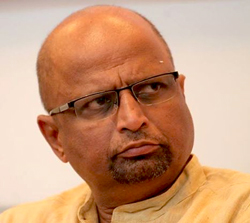Bengaluru, Jul 17: Karnataka Chief Minister BS Yediyurappa on Friday held a meeting with the Ministers-in-charge of eight zones to take stock of the COVID-19 situation and its management in Bengaluru.
Yediyurappa suggested that it should be ensured that both COVID-19 and other patients get timely treatment. He advised home quarantine for asymptomatic patients and hospitals and COVID Care Centers would provide treatment for those who are severely symptomatic.
He said, Rapid Antigen Testing should be carried out for those who died in the hospital, for immediate delivery of the corpse for funeral arrangements. He also said to conduct Rapid Antigen Test for those who have died at home and take action for the funeral of the dead.
The chief minister said, lockdown is not a solution to COVID-19 control, he made it clear that the government has no plans to continue with the lockdown in Bengaluru.
"To fill the shortage of doctors, the process of filling vacancies is ongoing," he said.
"Volunteers are identified and ambulances are assigned to each ward. Strict action should be taken if private hospitals do not provide beds to patients," the Chief Minister said.
The chief minister said volunteers and nodal officers would be appointed to provide information on the enrollment and availability of beds to COVID-19 infected persons in private hospitals.
"Welfare pavilions and lodges have been identified in each ward, suggesting the use of quarters to quarantine those who do not have separate rooms," the Chief Minister said.
He said, allocate bed within two hours of the result of the test and the ambulance must take action to take the person to the hospital. The Chief Minister suggested that the system be decentralised, zoned, and monitored.







Comments
TERRORIST DNT HAVE ANY RELIGION....
Prahlad Joshi, a mastermind of all Hubli riots and Anjuman ground dispute talking about the statement given by Dinesh Amin a senior writer/Editor and CM's Media advisor is foolish allegation.
There are many examples of the Muslim youths arrests in the past are acquitted by the court in our state and through out India. Recently Mumbai Train blast is another example for this. Mr. Amin is right on his statement and Joshi claim must be ignored.
BJP is always trying to find pebbles in sour milk.
Add new comment